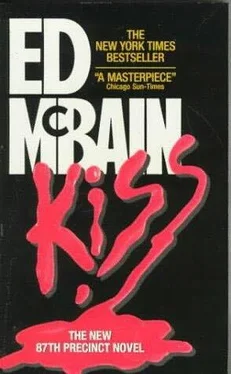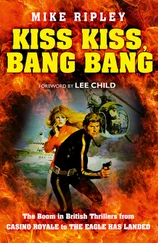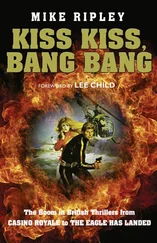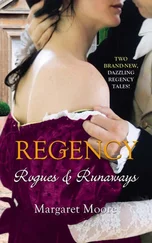"Sustained.”
"Detective Haggerty, did you tell Detective Bent that the murder weapon was a nine-millimeter Uzi?”
"I told him that the evidence bullets had been fired from a nine-millimeter Uzi.”
"And you determined this by performing certain routine tests ...”
"Yes.”
"That are, so far as you know, performed by every ballistics section in the United States ...”
"In the world.”
"In the world, thank you. Tests examining lands, and grooves, and twists, and what-have-you ...”
"These are all highly scientific ...”
"I haven't asked my question yet, Mr.
Haggerty. Are these tests infallible?”
"The tests are infallible, yes.”
"And are you also infallible?”
"What?”
"Have you never in your life made a mistake?”
"Not where it concerned determining the caliber and make of an unknown firearm.”
"Other mistakes, though? You have made other mistakes in your lifetime?”
"Everyone makes mistakes in his lifetime.
I'm saying ...”
"No further questions.”
"Mr. Lowell?”
Lowell came to the witness chair, looped his thumbs into his jacket pockets, leaned into the chair, and said, "Is it not an indisputable scientific fact that the caliber and make of an unknown firearm can be determined by examining a bullet fired from that weapon?”
"Indisputable.”
"Is it not also indisputable that the Ballistics Section in this city maintains the largest and most comprehensive classification of weapons anywhere in the entire world?”
"That is indisputable.”
"And that it maintains up-to-date records on any gun known to exist, including specimens of bullets fired from those guns?”
“Yes.”
"Did you compare the evidence bullets recovered from Mr. Carella's body with a specimen bullet fired from a nine-millimeter Uzi?”
"I did.”
"And what did you discover?”
"All of the bullets were of the same caliber, with the same twist, and the same number and width of lands and grooves.”
"And is that how you knew they'd all been fired from a nine-millimeter Uzi?”
"Exactly.”
"Thank you, no further questions.”
Addison rose again and came to the witness chair.
"Mr. Haggerty, are you saying that any bullet fired from any nine-millimeter Uzi would have the same markings?”
"No, sir, I'm not saying that at all.”
"Because I got the impression here that the bullets recovered from Mr. Carella's body could have been fired from any nine-millimeter Uzi, and not necessarily ...”
"No, sir, the impression would be a false one. What I said ...”
"Thank you, you've answered the question.”
"Your Honor?”
"Yes, Mr. Lowell?”
"May the witness explain what he did mean?”
"Your Honor, I'm satisfied with his answer.”
"I'm not," Di Pasco said. "Finish what you were saying, Detective.”
"I was trying to say that initially I examined the bullets recovered from Mr. Carella's body only to determine the caliber and make of the pistol that had fired them. But later, when I received the evidence pistol, I was able to conduct test firings that proved the evidence bullets were fired from that very gun. That's what I was trying to say, Your Honor.”
"Does that answer your question, Mr. Addison?”
"I felt my question had already been answered, Your Honor," Addison said dryly. "But I thank the witness nonetheless for his further elucidation." He turned from the witness chair, seemed about to walk back to the defense table, and then said, "Oh, yes," and walked back - to Haggerty. "Tell me," he said, "when did you receive the evidence pistol?”
"On the second day of August.”
"How did it come to your attention?”
"It was sent to Ballistics for examination.”
"Sent by whom?”
"By Lieutenant Nelson.”
"Do you mean Lieutenant James Michael Nelson of the Forty-fifth Detective Squad?”
"I do.”
"Was there a so-called Chain of Custody tag attached to it?”
"There was.”
"Was there any other name on that tag? Aside from Lieutenant Nelson's?”
"There was.”
"Can you tell me what that name was?”
"Detective Randall Wade.”
"Thank you, no further questions.”
Carella thought he noticed a thin triumphant smile hidden in Addison's beard.
This was the Old City.
He walked swiftly through City Hall Park, pigeons strolling even in the bitter cold, hands behind their backs like little old men, passing freshly painted green benches; here among the formidable, pillared buildings of government, there was still a sense of law and order, of civilization functioning, even though the city proper was a shambles. He continued walking steadily downtown, the day cold and bright and sunny, Lowell's words ringing in his ears, Addison's humming in secret counterpoint. And now the towers of big business loomed suddenly ahead, not too distant from the impressive gray structures of the law, where Carella had stayed only long enough to hear Addison's recross, and then had kissed his mother on the cheek and hurried off to meet Meyer. There were obligations, and not all of them were in that courtroom.
The ocean-battered seawall still stood where the Dutch had built it centuries ago, the massive cannons atop it seeming even now to control the approach from the Atlantic though their barrels had long ago been filled with cement.
If you looked out over the wall at the very - tip of the island, you could watch the Dix and the Harb churning with crosscurrents where the two rivers met. The wind howled in fiercely here, ripping through streets that had once accommodated horse-drawn carts but that were now too narrow to allow the passage of more than a single automobile. Where once there had been two-story wooden taverns, a precious few of which still survived, there were now concrete buildings soaring high into the sky, infested redundantly with lawyers and financiers. And yet-perhaps because the Atlantic was right there to touch, tumbling majestically off toward the Old World that had given this city its life-there was still the feel here of what it must have been like when everyone was young and innocent.
Well, not so innocent that they couldn't steal the place from the Indians.
They had tried to reach Martin Bowles at home last night, but there'd been no answer on the phone. When Meyer called his office this morning, he was told that Mr. Bowles could not see him until eleven A.M., after his morning meeting. Now, as Carella and Meyer walked through the narrow streets of the Old City, they went over it one more time. Police work was ever and always a matter of going over it one more time. And then one more time after that. And again and again after that, until it began to make sense.
"I admit it looks different with money involved," Meyer said.
"Very different," Carella said.
"It eliminates a crazy.”
"It also eliminates a dope angle.”
"What it gets down to is Bowles owed Tilly money.”
"One of the two basics, Meyer. Love or money. Now why do you think Bowles owed Tilly money?”
"Ask me a hard one.”
"Okay, how do these contracts work?”
"It's usually half on agreement, remainder on delivery.”
"Usually.”
"But Tilly didn't deliver. He fumbled two attempts.”
"And still wanted the rest.”
"Which is maybe why he ended up in a basement with a bullet in his head and a rope around his neck.”
"Which is why we're here to see Bowles,”
Carella said. - The offices of Laub, Kramer, Steele and Worth seemed a trifle cold and modern. A foot-high electronic ticker tape ran incessantly on the wall opposite the thick glass entrance doors, racing from right to left with symbols neither Carella nor Meyer understood.
Читать дальше












